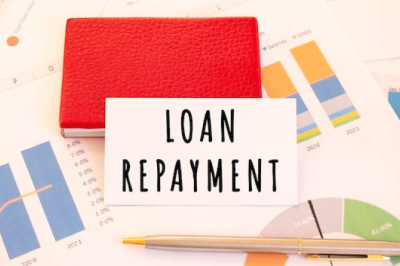Navigating the world of personal loans can seem daunting at first, but understanding the basics is your first step towards financial empowerment. Whether you're considering a loan for debt consolidation, home improvement, or unexpected expenses, it's crucial to grasp how personal loans work, their types, and what to consider before applying. This article will guide you through eight fundamental lessons on personal loans, providing you with the knowledge needed to make informed decisions.
What is a Personal Loan?

A personal loan is a type of unsecured loan provided by banks, credit unions, and online lenders that you can use for almost any purpose, from consolidating debt to funding a large purchase. Unlike secured loans, which require collateral (like a house or car), personal loans are backed only by your creditworthiness. This means that lenders assess your credit score, income, and other factors to determine your eligibility. The repayment terms can vary, typically ranging from one to seven years, with fixed monthly payments covering both principal and interest.
Understanding Interest Rates

The interest rate on a personal loan is crucial as it determines the total cost of borrowing. Rates can vary widely based on your credit score, loan amount, and lender. Generally, the better your credit score, the lower your interest rate will be. Personal loan interest rates can be fixed or variable. Fixed rates remain the same throughout the life of the loan, making budgeting easier. Variable rates, however, can fluctuate with market conditions, potentially increasing your total borrowing cost.
Types of Personal Loans
There are several types of personal loans to consider, each serving different needs. Unsecured personal loans do not require collateral and are the most common type. Secured personal loans, on the other hand, are backed by assets and typically have lower interest rates. Debt consolidation loans are designed to pay off multiple debts, ideally at a lower interest rate. Finally, co-signer loans are an option for those with poor or limited credit history, where another person agrees to take responsibility if you fail to make payments.
Eligibility Criteria
Lenders evaluate several factors to determine your eligibility for a personal loan. These include your credit score, income, employment status, and debt-to-income ratio (DTI). A good credit score (usually 670 and above) demonstrates to lenders that you're a responsible borrower, which could lead to more favorable loan terms. Your income and employment show lenders your ability to repay the loan, while your DTI ratio helps them understand how much debt you can realistically handle in addition to the loan.
Applying for a Personal Loan
The application process for a personal loan typically involves submitting personal and financial information to a lender, who will then perform a credit check. This can temporarily impact your credit score. It's important to compare offers from multiple lenders to find the best rate and terms. Online lenders often provide quick pre-qualification processes that allow you to see potential offers without affecting your credit score. Be prepared to provide documentation such as proof of income, identification, and information about existing debts.
The Impact of Personal Loans on Your Credit Score
Taking out a personal loan can affect your credit score in several ways. Initially, applying for a loan may cause a small dip in your score due to the hard inquiry on your credit report. However, consistently making on-time payments can positively impact your credit score over time. Additionally, a personal loan can improve your credit mix, which is a factor in determining your score. It's important to manage your loan responsibly to avoid negative impacts, such as missed payments or defaulting on the loan.
Repaying Your Personal Loan
Understanding your repayment terms is essential when taking out a personal loan. You'll need to know the monthly payment amount, the payment due date, and how long you have to repay the loan. Some lenders offer flexible repayment options, such as the ability to change your due date or make extra payments without penalty. Making more than the minimum payment or paying off the loan early can save you money on interest. However, be aware of any prepayment penalties that might apply.
Avoiding Common Pitfalls
While personal loans can be a useful financial tool, there are pitfalls to avoid. Borrowing more than you need can lead to unnecessary debt and financial strain. Ignoring the fine print might result in unexpected fees or terms. Relying solely on monthly payments as an affordability measure can also be misleading; consider the total loan cost, including interest and fees. Lastly, avoid predatory lenders who offer loans with extremely high-interest rates or unfavorable terms. Always research lenders and read reviews to ensure they are reputable.











Comments
0 comment